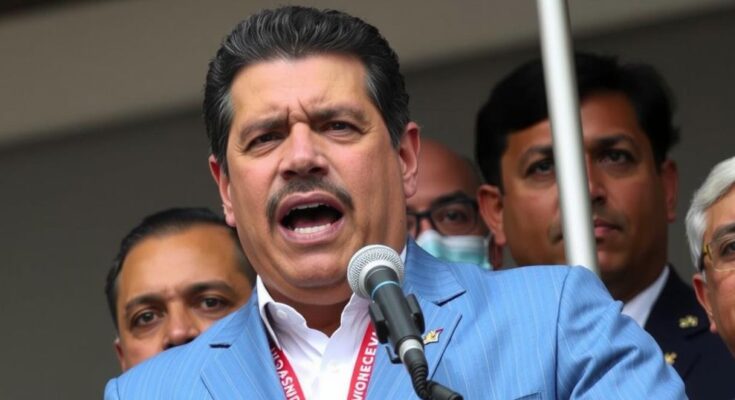President Maduro was sworn in for a third term after a disputed election; the U.S. extended protections for Venezuelans and El Salvadorans; Israel struck targets in Yemen following Houthi drone attacks; Biden announced new sanctions against Russia’s energy sector.
On Friday, Venezuelan President Nicolás Maduro was officially sworn in for a third consecutive term after an election marred by widespread controversy and allegations of fraud. Concurrently, the White House announced the extension of temporary protective measures for hundreds of thousands of Venezuelans and El Salvadorans residing in the United States, signaling continued support amid the ongoing crises in their home countries. Additionally, the Israeli military launched airstrikes on military targets in Yemen following drone attacks on Israel attributed to Houthi forces. In another significant development, the Biden administration revealed new sanctions aimed at Russia’s energy sector in response to its continued aggression.
The political landscape in Venezuela has been tumultuous, particularly surrounding electoral processes that many nations and international observers have deemed unfair. Nicolás Maduro’s government has faced increasing scrutiny for human rights violations and undemocratic practices. Furthermore, the plight of Venezuelan and El Salvadoran expatriates in the U.S. has prompted policy actions, such as the extension of Temporary Protected Status (TPS). Meanwhile, the conflict in Yemen, largely involving proxy forces such as the Houthis, has regional implications that affect Israel’s security. The ongoing conflict between Russia and Ukraine has further raised international tensions, prompting economic sanctions from the United States.
In summary, President Maduro’s inauguration amidst allegations of electoral misconduct highlights persistent concerns about democratic governance in Venezuela. The U.S. government’s actions regarding Venezuelan and El Salvadoran nationals reflect a commitment to humanitarian support. Concurrently, military assaults in Yemen and sanctions against Russia underscore escalating regional tensions and the complex international landscape facing U.S. foreign policy today.
Original Source: www.thirteen.org




